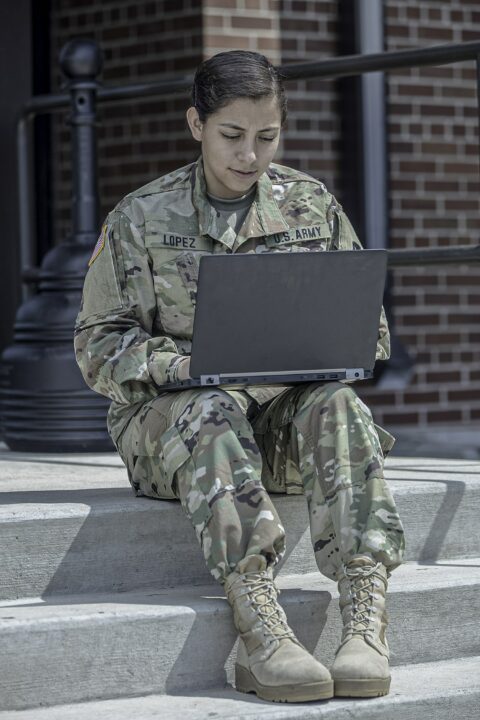Minnesota National Guard team helps student service members, practice fiscal responsibility

January 7, 2021 (SAINT PAUL, Minnesota) — The Education and Incentives team, a group of just five team members, works hard to ensure that active service members of the Minnesota National Guard receive bonuses and tuition reimbursements in accordance with state guidelines and protocols, protecting the financial resources granted by the state and federal government.
“It’s really important to get them their benefits, especially during these hard times,” said Ms. Laurie Lilli, a 23-year member of the team and current state benefits lead. “People depend on the money now more than ever.”
Lilli oversees processing accurate and timely payments as well as making sure service members are eligible for the funding they receive through a system of checks and balances.
Over the last three years, the Education and Incentives team has processed 6,688 State Tuition Reimbursement (STR) payments for 2,366 individual service members with reimbursements totaling more than $20 million.
Units must ensure that the student-service member is in good standing before submitting a request for STR. Just like any other Airman or Soldier, students are required to meet standards for height and weight, physical fitness and participate in unit drills. Additionally, undergraduate students must maintain a C-grade average or better while graduate students must have a B or better to qualify for reimbursement.
Once the request reaches the state office, the team must verify eligibility for each individual service member.
“We have someone that does a second check before the payments are actually processed,” said Lilli. “We make sure the right amount goes to the right person. We just check, check, check. We run it pretty tight.”
The program, which began in 1989 as a $250 reenlistment bonus has grown to $11 million per year to disperse to members in the Minnesota National Guard.
Each quarter, the State Incentives Working Group (SIWG) determines the budget and manages the inflow and outflow of money while ensuring it is spent within the limits of the policy and state law. The State Legislature allows any remaining balance to be forwarded to the next year’s budget.
The ability to budget has allowed the section to cover unforeseen costs such as the challenges with the Federal Tuition Assistance (FTA) system transition from GoArmyEd to the new ArmyIgnitED this past year. As a result, students have been able to use STR for tuition reimbursement without use FTA, unlike in years past.
In addition to processing reimbursement requests, the team provides suggestions for service members to receive additional funding for school such as filling out the Free Application for Federal Student Aid, known as FAFSA, or applying for scholarships listed on Military One Source.
The State Incentives Team works with external agencies to coordinate on-campus support and may work with a school directly on a student’s behalf.
“It’s a lot of work, and we network quite a bit,” said Sgt. 1st Class Teresa Anthony, the noncommissioned Officer in charge of education. “If you’ve heard the phrase ‘It takes a village to raise a child,’ this is our village to help support [service members] in their educational goals so that they are not overly burdened financially.”
Story by Army Sgt. Mashima Alkamooneh



